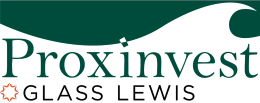ECGS has presented the 2014 survey on the composition and remuneration of Boards of Directors which covers Board practices in the 600 biggest companies in 16 European countries.
The independence of Directors has been a major corporate governance issue for years. Only 38% of Boards meet ECGS minimum independence requirement of at least 50% of Board or at least 33% in companies with mandatory employee representation (ex. in markets like Germany or Austria). Furthermore, 19% of companies show an independence rate below one third.
Major discrepancies are observed by the ECGS corporate governance analysts. On the one hand, in the Netherlands, 80% of Directors are independent thanks to the demanding Dutch corporate governance code which recommends that all members of the Supervisory Board except one should be independent. On the other hand, the lowest board independence rates are observed in Austria (31%; mainly due to the mandatory employee representation), Portugal (32%) and Spain (33%). According to the survey, the average independence rate of audit committees stands at 70% and of nomination committees at 62%.
The independence of Chairmen of Boards and the split of functions between the Chairperson and executive appear as a second biggest problem in Europe. Only 43% of European Chairmen can be deemed independent and what is more troubling 16% of them are executive. The separation of the roles of chairman of the Board and CEO is a crucial condition of an efficient corporate governance system. This best practice is recognized in most of the local corporate governance codes and has been introduced in the UK corporate governance since 1992 (Cadbury code), but not yet in France for example. France is the champion of combined chairman-CEOs: 60% of the Boards are chaired by the CEO and only 5% of the chairmen are independent. In Spain, 75% of the Boards of Directors are chaired by an executive director and none of the chair is independent according to ECGS guidelines. Sweden is a champion of Boards chaired by a former CEO (24%). Best practices regarding chairmanship are observed in the UK and in the Netherlands (94% of independent Chairmen in Dutch firms).
With respect to boardroom diversity and particularly women’s presence, ECGS has recommended for several years a minimum of 20% of women within the Boards and has opposed the re-election of nomination committee chairmen that failed to achieve this minimum target. 35% of European companies do not meet the ECGS minimum of 20% of women within the Board. Portugal has the lowest female participation on Boards of only 5%, followed by Luxembourg (12%), Ireland (13%), Switzerland (14%) and Spain (18%). The European average stands at 22%. The highest women presence is observed in countries having set gender quotas: Norway (38%) and France (31%).
The survey also analysed non-executive Director fees paid for the 2013 fiscal year. The average individual fee in Europe amounted to €111,309€ with the highest amounts observed in Switzerland of €337,276, mainly due to high remuneration level paid to some Chairmen former CEO.
ECGS (Expert Corporate Governance Service) is a partnership of local experts which mission is to provide fully independent proxy reports and corporate governance research to institutional investors and improve governance standards amongst companies in Europe.
If you have any questions or comments, please contact ECGS :
Natalia Ponkratova, ECGS executive
Tel:+33 (0)1 45 51 50 43
Email: new_ecgs (at) ecgs.com


